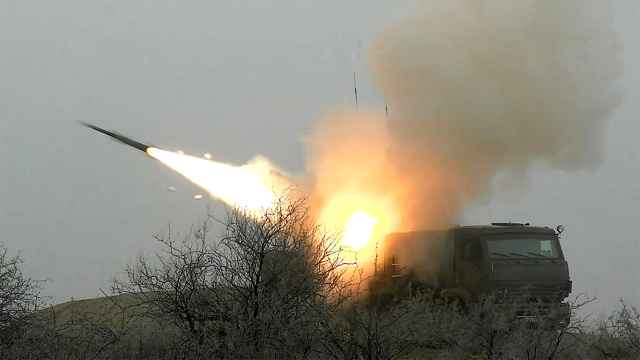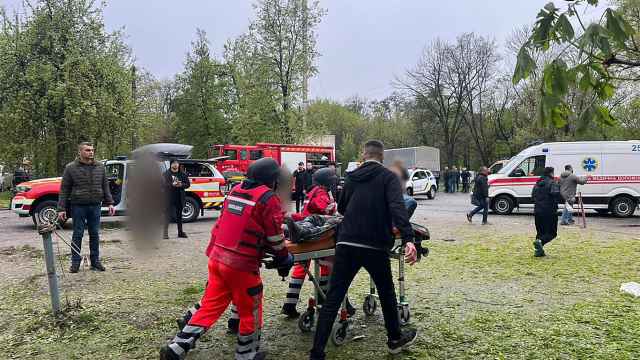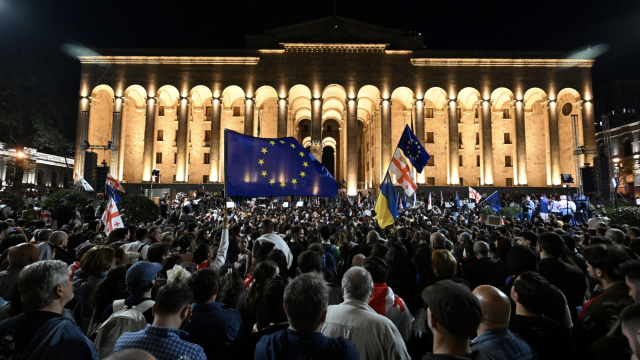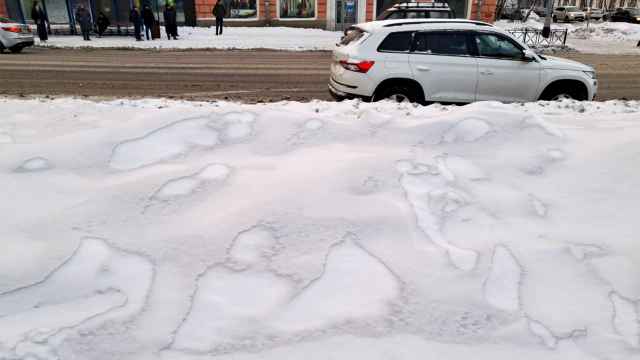An unpleasant surprise might await the next White House or Pentagon official who decides to go sightseeing in Moscow or take a dip at Sochi's beaches: no visa.
The Foreign Ministry announced on Saturday that it has banned entry for unspecified senior U.S. officials, "mirroring" a ban imposed by the U.S. State Department on Russian officials linked to the death of Hermitage Capital lawyer Sergei Magnitsky.
The ministry hinted that the blacklist tit-for-tat could endanger a U.S.-Russian reset in relations. But an independent analyst said Russia's ban was largely ceremonial because Moscow, if it were serious, would have targeted U.S. businesspeople in Russia.
The Russian blacklist includes officials implicated in "the legalization of torture in American special prisons, the abduction and torture of terrorism suspects, the indefinite detention of Guantanamo prisoners, and the uninvestigated murders of civilians in Iraq and Afghanistan," ministry spokesman Alexander Lukashevich said.
He also criticized the U.S. blacklist as direct pressure on the Russian authorities and "a political provocation," the ministry's web site said.
Lukashevich did not name any blacklisted officials, but said some of them were involved in the torture and abuse of Russian nationals. This was an apparent reference to the cases of Viktor Bout, a businessman being tried in a New York court on arms trafficking allegations, and Konstantin Yaroshenko, a pilot convicted of drug smuggling. Both were extradited to the United States from third countries against Russia's wishes.
The United States barred dozens of unidentified Russian officials over the summer in connection with the death of Magnitsky, who was detained in 2008 by law enforcement officials whom he had accused of defrauding the Russian government of millions of dollars. He spent 11 months behind bars, dying of health problems and, according to an independent, Kremlin-ordered investigation, a beating administered by prison guards hours before his death. Two prison doctors are under investigation for negligence, but no senior officials have been charged over his death.
The State Department imposed the sanctions in what is widely believed to have been an attempt by the White House to prevent a tougher blacklist, complete with a freeze of U.S.-based assets, from being passed by U.S. Congress.
Several other national legislatures in Europe and Canada are considering similar blacklists.
Russia has repeatedly denounced all attempts at visa blacklists as interference in the country's internal affairs. In July, President Dmitry Medvedev ordered the Foreign Ministry to draft the blacklist that was announced by Lukashevich on Saturday.
The ministry did not explain why the implementation of the Russian list was only announced now, after weeks of threats.
But the move came shortly after the State Department reprimanded Russia for human rights failings. A week earlier, department official Michael Posner spoke to Russian opposition activists outside Khimki and pledged to step up human rights efforts within the "reset."
Foreign Minister Sergei Lavrov also denounced the Magnitsky blacklist on Friday, calling it "an attempt to destroy the line pursued by President Barack Obama." He promised that it would not stop the reset.
But ministry official Lukashevich was less decisive, saying continued "political games with blacklists" might destroy the "positive dynamics" in relations.
Lavrov, who gave a joint interview to three national radio channels, also called Magnitsky's death a "national tragedy" that was "unworthy of Russia." He declined to speak about why no one has been punished over it.
The U.S. government did not comment on the Russian blacklist over the weekend. The embassy in Moscow declined to speak on the issue.
Independent political analyst Stanislav Belkovsky called the Russian blacklist "laughable," pointing out that Russian officials might have assets or business interests in the United States or even plans to emigrate, but the reverse was unthinkable.
"It is obvious that those [U.S.] officials have no assets or property in Russia, and this list is just a ceremonial measure," Belkovsky said by telephone Sunday.
"If the task would have been to act seriously, they could have found U.S. citizens with financial interests in Russia to blacklist," he said.
A Washington-based lobbyist for the Russian government said the Foreign Ministry's blacklist was "more logical" than the State Department's.
"The Russian list is more objective because it contains people who have done harm to Russian citizens. People on the Magnitsky list, meanwhile, haven't violated the interests of U.S. citizens," said the lobbyist, who asked for anonymity because of the sensitivity of the issue.
Lyudmila Alexeyeva, head of the Moscow Helsinki rights group, said neither list would have been drafted if Magnitsky's death had been properly investigated.
She also downplayed the significance of the blacklist tit-for-tat. "These are just diplomatic counterstrikes," she said, Interfax reported. "I don't think things will change for better or for worse."





